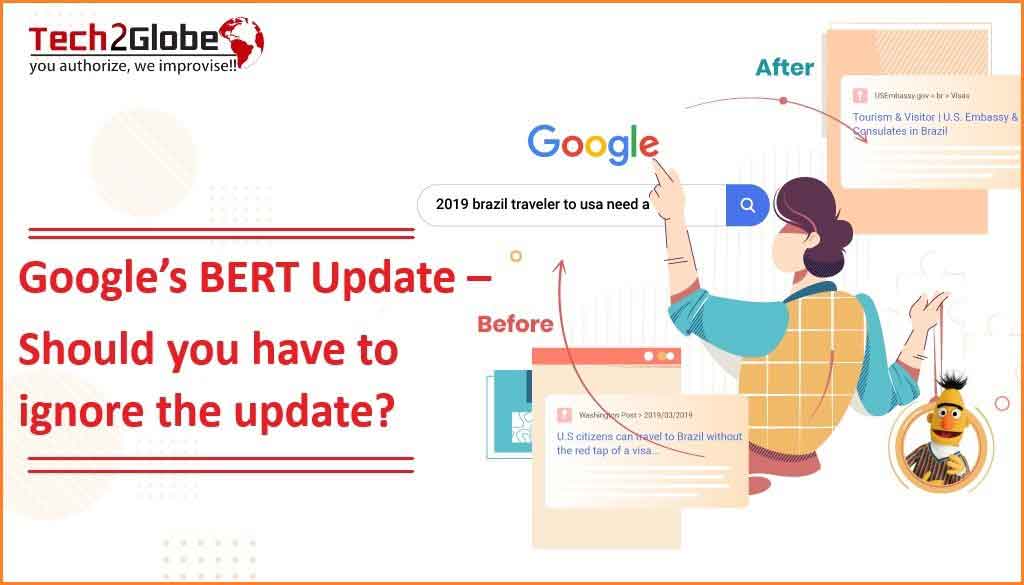At the last week of October month, Google introduced a massive changed in its algorithm after last 5 years and rolled out BERT update with the motive to improve the search queries and ranking system. The intent to introduce of this new algorithm, will help search system to better understand the context of user’s search queries and provide the relevant results as per the searches.
But there’s a bit of confusion among the SEO professionals about the real impact of BERT and how it affects the searches.
So, by this blog we’ll uncover the layer and provide you the right answer; should you have to ignore the BERT update or not? Before get dive into this let’s first understand what exactly is BERT?
What is BERT?
BERT stands for Bidirectional Encoder Representations from Transformers, is an open-source pre-trained Natural Language Processing (NLP) system designed from Google to understand the real nuances of search queries. Simply, it’s a technique that help Google to figure out the real intent and context behind the search queries. BERT model tries to understand the context of a word based on all of the other surrounding words, making the search results of conversational queries more accurate.
How BERT Works?
Google wrote in its blog post BERT particularly for longer, more conventional queries and search will be able to understand the context of the words in your query. But many SEOs and many of the tracking tools didn’t notice massive changes in the Google search results while this algorithm rolled out in Search after launched of first week.
Even Google’s Public Search Liaison; Danny Sullivan highlights that “there’s nothing new with this update”, you just have to focus on to drive the user-centric content.
Here’s the Danny Sullivan tweet;

The real motive of this update to make improvement in Google search system to crack the intent of search queries. Also, Google gave some examples of:
In one of the examples, the search query “math practice books for adults” – previously Google show the search results for “Math Practice for Grade 6 -8”. But after applied the BERT, the results has some changes in to “Math for Grownups” at the top of the SERP.

Clearly shown in the search result the book for Grade 6 – 8 still rank on the SERPs and the second book especially aimed for adult that is also rank. Here, after applied the BERT the query became more personalized and measure the each nuances that includes in the searches.
You’ll be better understanding by this example that Google explained, in the phrases “nine to five” and “a quarter to five,” the word “to” has two different meanings, which may be obvious to humans but less so to search engines. So, here works BERT that especially designed to distinguish between such nuances to facilitate more relevant results.
Should have to care of that!
Umm! Not exactly.
As Google explained that BERT models to do a much better job helping you find useful information and will help Search better for people across the world. A powerful characteristic of these systems is that they can take learnings from one language and apply them to others. So we can take models that learn from improvements in English (a language where the vast majority of web content exists) and apply them to other languages. This helps us better return relevant results in the many languages that Search is offered in.
So the conclusion, the primary focus of an SEO professional should be to generate user-centric content rather than trying to manipulate searches. As Google says, “user is the first priority” & whenever the content drives the user interest the more rankings you achieved.










